BIG NUMBERS. Further reading:
Alan Moore, 2000, interview at Blather.net
I missed this at Slate.com: Watchmen Failed
The revolution it was supposed to inspire—comics about ordinary people—never happened.
By Grady Hendrix
Posted Thursday, March 5, 2009,
Bill Anderson in comments yesterday contributed this note:
Frank Santoro's post on the subject from last August, like most of his writing, tells us more about Santoro than about his subject
"Reading it feels like trying to make your way through a crowded funeral parlor."
However, Robert Stanley Martin's assessment from last september, written in response to Santoro, is very good:
I've noticed that more than one commentator has attributed the third Big Numbers entirely to AlColumbia. NOT TRUE.
I was checking the Wikipedia page for Big Numbers and was amused to see that it sends readers to How to be an Artist for "a thinly fictionalized version' of events." arf ("we'll fix that when we get home, Bart")
Alan Moore, 2000, interview at Blather.net
"Yeah, well, I mean, I've got the whole thing plotted. I've got an enormous sheet of A1 paper with the whole plot on it, almost like a graph. The idea was that we were going to produce a really good comic, publish it ourselves, we were really committed to it and it was my money that was kind of supporting the entire thing. What happened was that Bill Sienkiewicz, after promising to do it, he did a brilliant job on the first two episodes and then just seemed to stop working upon it and all the money was kind of pouring down a black hole, because we'd still got overheads but we couldn't actually get a comic out, because the artist wouldn't - and we kept saying "Look, Bill, if you don't want to do this work, just tell us and we'll think about something else, get a replacement in or something but just tell us so that we're not just having all of our money pouring down a drain" and Bill still didn't get up the nerve to tell us that he didn't want to do it for another few months, by which time our situation was desperate. Then Kevin Eastman, of Teenage Mutant Ninja Turtles fame, he stepped in with his brave but doomed publishing venture Tundra and he was trying to produce Big Numbers. We tried to get Al Columbia, who'd been Bill Sienkiewicz's assistant, to continue with the strip. Now, I heard that Al did an issue of it but then, depending on which story to believe, either he destroyed the artwork or took it away or I don't know what happened but it meant that we'd had two artists sort of back out on the project.
I don't see any way that I can resurrect it as a comic strip. I mean, what do I do? Do I actually sort of say "Yeah, we've got a great new artist, are we going to start from #1 again but this time, no, buy it, because this time we really will get to issue #12." I mean, I wouldn't buy that if I heard it from somebody who'd kind of failed twice to do what he said he was going to do. "
I missed this at Slate.com: Watchmen Failed
The revolution it was supposed to inspire—comics about ordinary people—never happened.
By Grady Hendrix
Posted Thursday, March 5, 2009,
"artistically, Watchmen came and went, and the promised revolution in comic-book storytelling never happened. The comic was written by Alan Moore and drawn by Dave Gibbons, and became to comic books what The Sopranos is to TV: an intellectual fig leaf concealing the vast wasteland of Two and a Half Men reruns.
A fourth dimension is opened up when a comic book about pirates being read by the freeloading kid at the newsstand becomes part of the narrative, amplifying and commenting on the action. Visual details linger from scene to scene, linking disparate locations and characters; conversations started by one character are finished by another; and every detail, every image, every sentence seems to contain the entire DNA of the story. There is no center because it's all center. The lurid violence of the superhero plotline is overshadowed by truly heroic acts of forgiveness, selflessness, and the facing of hard truths by characters who would normally barely merit a glance in an issue of Batman. Needless to say, most of these characters and techniques are missing from the finished film, which views Watchmen from only the superhero fan point of view, which is the least rewarding approach.
After Watchmen, Alan Moore attempted the most ambitious comic book of his career, Big Numbers. A miniseries in roughly the same format as Watchmen, it would completely avoid superheroes (whom Moore describes as "a bit morally simplistic") and instead focus on the residents of a small British town thrown into disarray when an American shopping center opens in its midst..."
Bill Anderson in comments yesterday contributed this note:
'Though by the time you asked him about it the reason for not publishing #3 has become (the more diplomatic) that it doesn't make sense to publish #3 without a #4 through #12, you actually mention the real (or at least original) reason for not publishing: The radical style change in the midst of #3.
I was in the offices within a few days of the arrival of the duotone pages, and Kevin showed them to me. I don't have a recording of what was said, and I didn't take notes, so let me just say that my impression of his reaction was 'Can you fucking believe this? There's no way we're publishing this.'
Frank Santoro's post on the subject from last August, like most of his writing, tells us more about Santoro than about his subject
"Reading it feels like trying to make your way through a crowded funeral parlor."
However, Robert Stanley Martin's assessment from last september, written in response to Santoro, is very good:
"Restraint is not a tendency I associate with Sienkiewicz, and the project's demand for it on his part may be why he burned out on it so quickly. He and Moore are not natural collaborators. Despite Moore's claims that he shapes each project in accord with the artist's strengths, he inevitably treats an artist he works with as a pair of hands. The legendary degree of detail he includes in his scripts can easily serve to intimidate. Sienkiewicz's nature favors eclecticism and spontaneity; his first impulse is to experiment. He needs the sort of collaborator he had with Frank Miller on Elektra: Assassin and Daredevil: Love and War: someone he can bounce ideas off of, and who treats him as an equal when it comes to shaping (or changing) a work's direction. He's the sort who would chafe under the taskmaster scripts of a writer like Moore. It would have been a miracle for a project like Big Numbers, with its expected length of 500 pages, to not go off the rails with these two, and a miracle didn't happen.
I've noticed that more than one commentator has attributed the third Big Numbers entirely to AlColumbia. NOT TRUE.
I was checking the Wikipedia page for Big Numbers and was amused to see that it sends readers to How to be an Artist for "a thinly fictionalized version' of events." arf ("we'll fix that when we get home, Bart")
Labels: "We'll fix that when we get home Bart", alan moore, Big Numbers
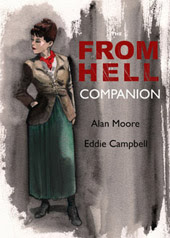
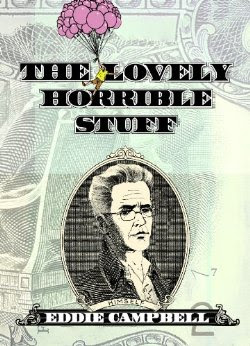

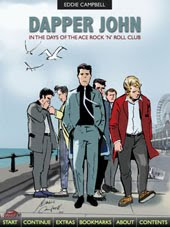
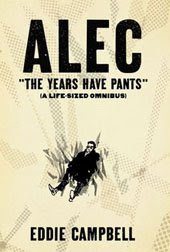
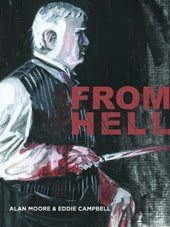
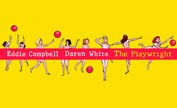
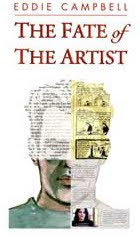
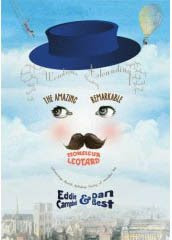

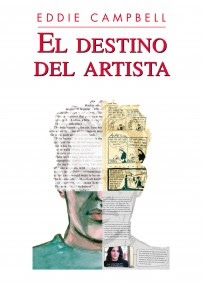
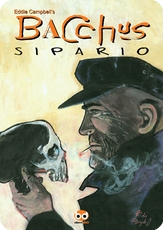
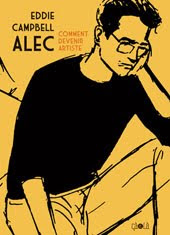

8 Comments:
Hi Eddie,
Cheers for all this. Ive been reading the 'lost' big numbers 3 on that chaps site. great to see it.
By the way, did you get my email about your long chat with Alan Moore? I mean the one published in Escape 5, in 1984. Its a very interesting piece, full of you and Alan's thoughts about creating comics - I volunteered to type it out so that ' the man at the crossroads' could maybe put it up on his website. So far I have transcribed about a third of it, and sent that to Paul, to be going on with.
Hope thats ok with you - or do you not want it shown now? If so, i'll stop.
Cheers,
Sean
It's on the public record. Do as you wish. But i'll probably avoid reading it, if you don't mind.
Eddie
Fair enough, ta.
I'm curious as to why though - do you think the things said in it are probably no longer valid? Or perhaps you are in the general habit of avoiding reading your old interviews?
Sean
I only just discovered i've got a Scottish accent.
Ha Ha!
Me too...
New subject: Im looking forwards (not backwards) to the Top Shelf collected ALEC book, THE YEARS HAVE PANTS.
Goodie, goodie...
My own collection with Top Shelf comes out 3 months after yours. I mean the alternative manga book im editing for them:
http://www.topshelfcomix.com/catalog.php?type=12&title=645
That looks great. Well worth checking ouT!
Eddie
Ta again Eddie.
Yes, we are hopeful that the AX collection will take a big step forward in getting more alternative/indie/mature style manga known outside of Japan. Certainly there's been a very good response so far. A bunch of erudite fans even started an
'AX research project'!
blog.electricantzine.com/ax-research-project
Im editing it a bit more right now in fact - just checking through the translations for a story by Kataoka Toyo, which is called in English:
"The Ballad of Non-stop Farting"
Oh yes...
Post a Comment
Subscribe to Post Comments [Atom]
<< Home